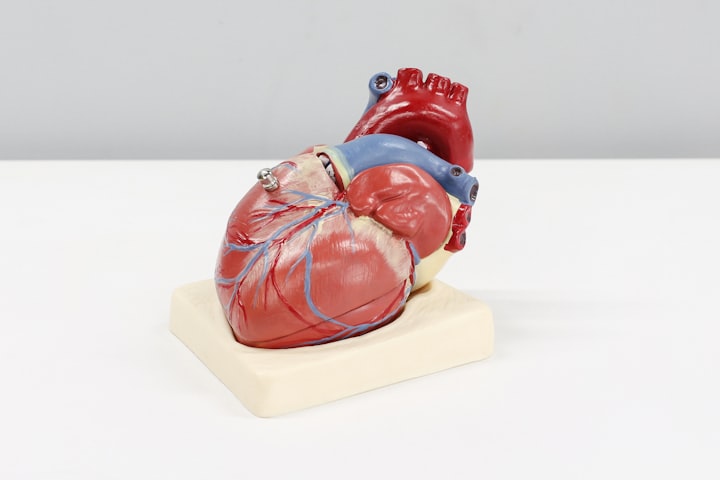
The eighth goal of the Global NCD Action Plan is that at least 50 percent of eligible people should receive treatment and drug counseling, including glycemic control, prevention of heart disease or stroke. Prevention of heart attack and stroke using a comprehensive cardiovascular risk assessment should be part of a basic package of services based on individual factors and risks if health care is required worldwide.
The cardiovascular calculator was developed by the American College of Cardiology and the American Heart Association (ACC) guidelines for cardiovascular risk assessment, including gender, race and certain 10-year risk estimates, and cardiovascular health. This calculator is useful in measuring the risk of heart disease in people with severe risk factors and a higher risk of heart attack, stroke, or other cardiovascular events. The most important factors for heart disease and stroke are unhealthy diet, lack of exercise, smoking, and dangerous drinking.
Heart disease is a group of diseases and conditions that cause heart problems. The most common form of Cardiomyopathy, which leads to a weakened heart, is the result of past heart damage caused by medication, disease, or heart attack. It is not clear what is causing this situation.
Cardiovascular disease (CVD) refers to many types of cardiovascular disease. There are many types of cardiovascular disease but one of the most common ways of this is to reduce or block the blood vessels that supply the heart with blood. It is known as heart disease, or CAD, and is a major cause of heart disease.
Cardiovascular disease (CVD) includes cardiomyopathy (CHD), stroke, heart failure, and other cardiovascular diseases. Heart disease is the leading cause of death for both men and women in the United States, outside of New York State. Heart disease is a term that refers to many types of heart disease, including heart failure (CHD) and heart disease.
Heart disease or stroke is the leading cause of death in the United States. The American Heart Association estimates that 92.1 million Americans live with some form of heart disease or stroke. Heart disease is the leading cause of death in the US for people of all races and ethnicities including African Americans, Native Americans / Native Americans, Hispanics, and whites.
Heart disease comes from people who smoke, have high blood pressure, high blood cholesterol (very low levels of lipoprotein cholesterol or LDL-C), are overweight, do not exercise regularly, and have diabetes. In addition, people with diabetes are more likely to have heart disease and stroke than people without diabetes. Smokers, including smokers, smokers, and smokers, are more likely to have a heart attack than non-smokers.
In atherosclerosis, blood vessels become thicker and thinner as fat is absorbed. Blood clots break down blood flow to parts of the heart, and parts of the heart muscle that supply blood vessels begin to die. Lack of blood flow means the heart does not have enough oxygen, which leads to heart disease.
Heart disease or stroke is a traumatic event caused by a blockage that prevents blood from flowing from the heart to the brain. The most common cause of this is the formation of fatty deposits in the inner wall of the arteries that nourish the heart and brain. Most people survive a heart attack for the first time, return to normal life and enjoy many years of productive work.
Damage to the circulatory system can be the result of diabetes, other diseases such as infections, inflammatory processes such as myocarditis, or structural problems at birth (congenital heart disease). Stroke is caused by bleeding in the blood vessels in the brain where clots form.
Antidiabetic drugs can reduce the risk of heart disease in people with type 2 diabetes, but the evidence is inconclusive. Current guidelines are no longer recommended for most people as this can lead to bleeding. However, some doctors recommend Aspirin for people at high risk for a heart attack such as a heart attack or stroke or for people at a lower risk of bleeding.
The use of vasoactive substances in people with pulmonary hypertension left heart disease and hypoxemic lung disease can cause unnecessary damage and expense. Aspirin has been shown to have modest benefits for people at low risk of heart disease and for those at high risk of bleeding, with similar benefits for heart problems.
Cardiovascular disease refers to diseases that affect the heart and blood vessels. Heart disease (CVD) is associated with damage to the arteries and organs such as the brain, heart, kidneys, and eyes. It is also associated with the formation of fat in the arteries (atherosclerosis), which increases the risk of blood clots.
Cardiovascular diseases describe conditions ranging from physical ailments (high blood pressure) to heart attacks and strokes. Vascular disease, which narrows the blood vessels that supply the heart with blood, causes almost every heart disease each year. Worryingly, 220,000 people died of a heart attack before arriving at the hospital.
One of the most common complications of heart disease is heart failure, which occurs when the heart is unable to pump enough blood to meet the body's needs. Heart failure can be the result of many types of heart disease including heart failure, heart disease, heart valve disease, heart disease, and cardiomyopathy.
The accumulation of fatty deposits in the arteries can damage blood vessels and the heart. Blood clots can block the flow of blood to the arteries, causing heart disease and damaging or destroying parts of the heart muscle. Another risk factor for cardiovascular disease can be a stroke, which occurs when the arteries leading to your brain shrink and the small blood vessels stop reaching your brain.
Blood pressure is a measure of the pressure found on the arteries by heartbeat. Atherosclerosis is a disease that occurs when things called plaque build up in the walls of arteries.
About the Creator
Radha Karki
I am very curious ar learning new things, love to read books, paintings, art, and love singing too.





Comments
There are no comments for this story
Be the first to respond and start the conversation.